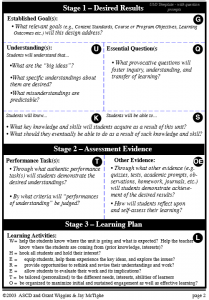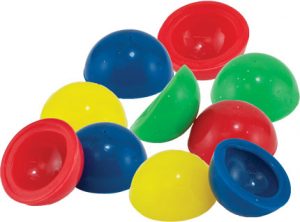Physics Performance Tasks
 One thing I’ve been trying to implement more and more into my units are Performance Tasks. McTighe and Wiggins in their Understanding by Design framework say that a Performance Task is an authentic assessment where students demonstrate the desired understandings. In my context, I currently use small SBG quizzes for the bulk of my assessments. Jay McTighe, who I had the pleasure and privilege of having lunch with, would probably call my quizzes “supplementary” evidence. I don’t disagree with this. My quizzes give formative feedback to my students to push their learning forward and they tell me what basic understandings my students have. However, they are not the pinnacle of learning for Physics 11.
One thing I’ve been trying to implement more and more into my units are Performance Tasks. McTighe and Wiggins in their Understanding by Design framework say that a Performance Task is an authentic assessment where students demonstrate the desired understandings. In my context, I currently use small SBG quizzes for the bulk of my assessments. Jay McTighe, who I had the pleasure and privilege of having lunch with, would probably call my quizzes “supplementary” evidence. I don’t disagree with this. My quizzes give formative feedback to my students to push their learning forward and they tell me what basic understandings my students have. However, they are not the pinnacle of learning for Physics 11.
The idea of a performance task can be described using the GRASP framework which talks about real world goals and roles, with a real world product or performance. For some units, the performance task may be pretty obvious. For example, for a unit in Finances in Math 9 an appropriate Performance Task would be the building of a budget to make a substantial purchase.
In physics we may turn to the Modeling Instruction curriculum, where there is the idea of “lab practicums”. These lab practicums have students design a lab using some prescribed equipment in order to model and analyze a situation. I’ve done some of these in the past and they’re fun and challenging. However, the group work aspect of these lab practicums make them very hard to assess. Each student will be accountable for different tasks, and perhaps these aren’t the tasks that you really want to assess. For example, there is no way to avoid a situation where one student in a group of three comes up with the main understanding and idea for implementing the lab practicum, yet this is arguably one the most important parts in terms of assessment of the lab as a performance. Other group members can easily hitch a ride in the practicum by being responsible for lesser roles that don’t speak to the main understandings of the unit.
 Goal-less problems present an excellent type of Performance Task in physics. In some cases these individual goal-less tasks can be combined with lab equipment for a real challenging assessment which can allow for a low floor and a high ceiling. One of the best examples I can think of is the “popper” lab. This is where I give students one popper and a stopwatch and ask that they model the popper’s motion.
Goal-less problems present an excellent type of Performance Task in physics. In some cases these individual goal-less tasks can be combined with lab equipment for a real challenging assessment which can allow for a low floor and a high ceiling. One of the best examples I can think of is the “popper” lab. This is where I give students one popper and a stopwatch and ask that they model the popper’s motion.
In terms of goal-less problems, I wonder if they are something that should be used after each unit, or just as one culminating performance at the end of mechanics. Either works. I like the idea of practicing goal-less problems a bit during the year and having one culminating goal-less problem as a Performance Task and summative assessment. This still asks the question as to what could be performance task for each individual unit.
This is where I’d like to hear from you. What are some performance tasks that you think are valid for each of constant acceleration, forces, energy and momentum?
